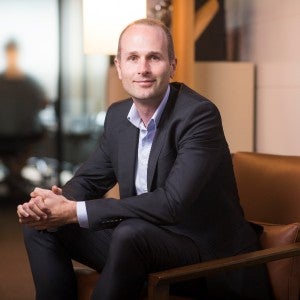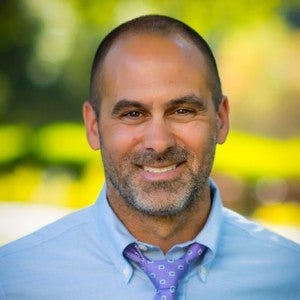Chief people officers (CPOs) are in demand, with research from LinkedIn’s economic graph team revealing that the US recruitment growth rate of CPOs has increased by 32 per cent per year.
But old-school human resource executives need not apply; forward thinking organisations across the globe are on the hunt for new-look CPOs who boast an arsenal of skills designed to optimise the employee experience, to help drive organisational performance.
In return, these individuals are being offered a collaborative working environment alongside board-level executives – a far cry from the operations-focused HR executive, who had to barter for mere board recognition.
Here, five new-look CPOs share their first-hand experiences of their role:
Rachel Ernst
VP Employee Success, Reflektive
 Rachel Ernst epitomises the new-look chief people officer. As vice president of employee success, Ernst has dual responsibility for ensuring both employee and customer success.
Rachel Ernst epitomises the new-look chief people officer. As vice president of employee success, Ernst has dual responsibility for ensuring both employee and customer success.
She explains: “I serve a dual role at Reflektive, both overseeing our employee success team internally, and also working with our customer success and product teams to ensure we are providing the right products and services to our customers.”
She continues: “I see my role as the enablement of employees’ success at the company. Even the word ‘experience’ doesn’t fully capture the value a CPO provides to an organisation. The true value comes from creating the right organisational environment, for people to be successful. This is a difficult task, which is why organisations need to be very thoughtful about who they hire for the role.”
“Creating the right environment means defining and executing on a disciplined hiring practice, partnering with the CEO on a focused goal methodology to align the organisation, articulating high standards, translating the company values into everyday work, helping managers hold people accountable, and most importantly, making it safe for employees to voice their opinions.”
Ernst, who was appointed to her role at the California-headquartered performance management software provider in May 2018, is in no doubt about the value she brings to her organisation. “Many HR leaders are measured on their ability to hire and retain top talent, but the real measure of the HR function is the impact it has in growing the company,” she says.
“The operational and compliance functions of an HR leader are table stakes today. Organisations like Reflektive are looking to their HR leader to translate the power of their employees into a high performing and economically valuable company,” she adds.
Liam Hayes
Global chief people officer, Aurecon
 As the global CPO for Aurecon, Liam Hayes is responsible for driving its people strategy and employee experience, to help the Melbourne-headquartered engineering firm deliver on its business strategy.
As the global CPO for Aurecon, Liam Hayes is responsible for driving its people strategy and employee experience, to help the Melbourne-headquartered engineering firm deliver on its business strategy.
He explains: “My role is much more about driving our people experience rather than people operations. People operations usually entails a focus on compliance through policies and procedures – these are not differentiators or motivators. As organisations have evolved, it’s important to challenge why dated policies and procedures are required…and if so, [whether] they [can] be simplified and/or automated.”
He adds: “One example of how Aurecon has transformed a traditional compliance operation into an improved employee experience is our creation of a visual employee contract. A world-first for a global company of all levels of staff, the visual contracts removed 4,000 words, are free of legal jargon and resemble a comic strip. By reimagining the recruitment process through the lens of an employee, the design sets a tone of innovation from an employee’s first initiation with Aurecon. People experience is about creating an environment where our people can thrive.”
Talent management is key to Hayes’ role. “As a professional services firm that employees a large STEM workforce, our people are critical to the value we bring to our client and communities. The role of my team is to work with our leaders to ensure we have our unfair share of the best talent in a very competitive market and a culture where our people can bring ideas to life for our clients.
Russ Laraway
Chief people officer, Qualtrics
 Russ Laraway is the chief people officer at Qualtrics, with responsibility for leadership development, experience teams, people analytics, and talent acquisition, but he puts employee experience at the heart of his remit.
Russ Laraway is the chief people officer at Qualtrics, with responsibility for leadership development, experience teams, people analytics, and talent acquisition, but he puts employee experience at the heart of his remit.
He explains: “[The business] started in a world in which companies performed an annual engagement survey, hired a consultant to tell them what it means, and then put the results on a shelf. The new world and journey we’re on at Qualtrics involves proactively designing, measuring, and most importantly, improving experiences along all points of the employee lifecycle…”
A case in point his appointment of ‘guardians of the employee experience’. “The guardians understand where in the company, perhaps, a majority group might be having a better experience than an underrepresented group and will help push for better inclusion and belonging,” Laraway says.
Laraway’s career history helps to explain his outlook. “I think one way I bring value [to the organisation] is that I have been on the operating side most of my career, from [Marine Corps] infantry company commander to [working in] sales, marketing, and even customer success. I think this puts me in a unique position to develop an agenda that puts people and results in the centre,” he says.
He also cites his ‘strong measurement disposition’ as key to his role at the US-headquartered experience management business. He says: “We use the scientific method to form our agenda. We start with theories and then we test them. The first team I formed when I joined was people analytics. Far too many HR [and] people operations organisations are following arbitrary and capricious agendas. We don’t; we hold ourselves accountable [for] every investment…”
Andrea Pattico
Chief people officer, MVF

For Andrea Pattico, chief people officer at London-headquartered technology marketing business, MVF, there is a stark difference between the old-school, operations-focused HR function and the new-look employee experience-focused CPO remit.
She explains: “If I were to capture [my role] in one sentence, I’d say that I’m responsible for co-creating and executing a global people strategy and experience that makes MVF a great place to work, and builds long term value to support our growth. The co-creation element is key; I don’t do this in isolation, but with my colleagues on the executive board, the people team, our senior leaders and all our MVFers [employees].
“We’re an ambitious business so as we continue to grow, my role has to have an ever increasing focus on facilitating a culture that drives growth, brand value and creating radical experiences that attract the right people to our business and grow and retain existing MVFers. That will almost certainly involve not following the crowd or doing what is considered normal by ‘HR’ standards. The term ‘HR’ is banned at MVF.”
Pattico considers the marketing principles, which she learnt as part of the marketing studies, which formed part of her first degree, as key to her new-look, employee-focused role.
“It’s the people team’s job to take the elements that make us a great employer (as well as spotting the areas we need to improve), and package it all as a long-lasting experience that appeals to the many different types of individuals that work for us. It should also differentiate us from other employers; essentially it is why people choose to join us, stay with us or leave us.”
Danny Harmer
Chief people officer, Aviva
 Workplace culture is a key focus of Danny Harmer’s remit as chief people officer at Aviva. “I am accountable for culture, people and the people strategy for Aviva; culture is now seen as a fundamental part of the role of the people function.”
Workplace culture is a key focus of Danny Harmer’s remit as chief people officer at Aviva. “I am accountable for culture, people and the people strategy for Aviva; culture is now seen as a fundamental part of the role of the people function.”
In essence, Harmer is responsible for focusing on how culture and people align to the purpose of the organisation. “If you think about it, the service and products which customers experience are effectively outputs of the behaviours or culture of an organisation.
The CPO role uniquely looks at and shapes the million different inputs and cues in an organisation, which influence culture and outcomes. Alongside all that, it delivers the basics of having the right people join and stay, and helping them be better in a way that is aligned to the purpose of the organisation,” she says.
But Harmer is careful about focusing on the job at hand, rather than on evolving job titles.
“‘People experience’ potentially applies a skewed lens to HR. While HR should be interested in what it is like for people to work [in their organisation], and also why people join and stay, this needs to be aligned to the purpose of the organisation in a commercially sustainable way. Focusing solely on employee experience with no alignment to the business purpose doesn’t make business sense,” she explains.
“People operations are the engine of the HR function. Without simple effective processes, which deliver the employment fundamentals, we don’t have the licence to support the business in broader ways,” she adds.









